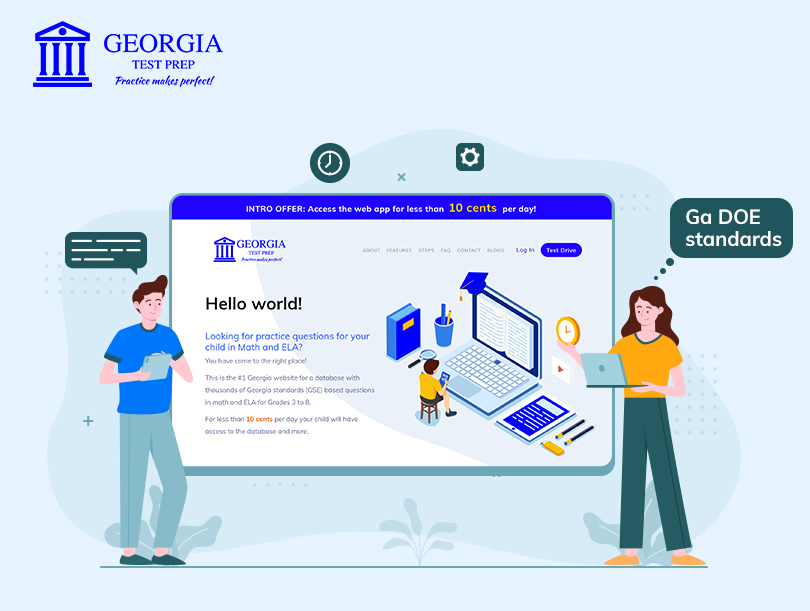Reading comprehension isn’t about being able to string words together, it’s about deriving meaning from the text. In other words, just because a child can read a text doesn’t mean they truly understand it.
It’s the difference between reading Shakespeare and getting Shakespeare.
But the implications go far beyond appreciating literature. Comprehension is about reading between the lines, understanding vocabulary and figurative language, inferencing, verbal reasoning, grammatical development, and oral expression. It’s about being able to understand the reason something has been written, or what the stance of an author is on a particular subject.
In this day and age, the ability to comprehend text is more important than ever. Being able to look beyond the written words of a text can, for example, help a reader differentiate between fake news, biased news, and genuine news.
Catching a struggling reader early is relatively easy, but students who have trouble with comprehension may go under the radar and only be found when they fail standardized comprehension tests. But all hope is not lost. This post is going to give you five ways to support students who are struggling with reading comprehension.
1. Try different subjects
Sometimes all it takes to get a student to comprehend what they’re reading is to get them to read something they are genuinely interested in. Feel free to look beyond what is traditionally considered “school material”. It could be fiction, it could even be a comic book. The point is to see if they are really able to absorb the matter.
Ask your child to pick some reading material for themselves, and get involved with their reading. Younger students may also be open to reading aloud for you. Every now and then, under the guise of curiosity, interject a question that will ask them to think about the meaning of the text. This will give the student an opportunity to become “the explainer” and subtly ask them to practice comprehension.
2. Teach vocabulary
One of the most basic ways to make for a richer reading experience for your child is to bolster their vocabulary.
Get a word-of-the-day calendar, use flash cards, or anything else—there are dozens of ways to help improve a students vocabulary, more than we can cover in this post. A simple game that you can play almost anywhere is to say a simple definition of a word and ask your child to identify the word.
Additionally, a strong vocabulary enhances fluency. We’ve all experienced it— we come across a new word, and that interrupts our reading flow. This can be especially frustrating for a child who is already having trouble comprehending a text.
So the other side of teaching vocabulary is to frame these instances as positive. Assure your child that even you don’t know all the words. Encourage them to view these instances as an opportunity to learn a new word.
3. Oral essay questions
Older students may not be comfortable reading out loud for you, but there’s more than one way to get involved in their reading.
Get your child’s buy-in to do this exercise—it could be seen as an invasion of privacy if you just dip into their reading material, no matter how good your intentions, and that will be the end of the whole thing right there.
The point of getting into their reading is to pose essay type questions now and then. Dig into the “why” of something that happened, what does your child make of a certain event or certain action that a character took, what real-world parallels can they draw, and so on.
A word of caution, however: be sure never to give spoilers. Nothing is worse for a child reading a beloved book.
4. Urge note-taking
This is a practice that we use even as adults. Any time we see something interesting, we mark it. If we come across a passage or term we don’t understand, we highlight it so we can come back and look it up. We jot down points of interest that will help us summarize a text for a presentation. We are always taking notes, in some form or another.
Urge your child to take notes and make marks when they need to read for comprehension, no matter how trivial the text may seem. This will get them into the habit of looking out for and identifying pieces of text that could be important for its comprehension. There is no shame in writing in the margins, and in fact it’s a skill they will use more and more as they progress through life.
5. Summarizing
One the best—and simplest—ways to test comprehension is to ask your child to summarize a text.
Ask for a 1-page book report on whatever they are reading. It doesn’t even have to strictly be a book. But you’ll be able to judge if:
- They can identify the main points of interest.
- They can tell you what the text is about.
- They can draw out the meaning or intent behind the text.
You can make it a fun experience with a little bit of gamification and some kind of reward mechanism. For example, 5 satisfactory summaries earns a special treat.
Final thoughts
As with any method to help a child, the main thing to remember is to be patient. Remind your child that struggling with reading comprehension is merely a facet of processing information, and not of intelligence. Like all subjects, any child can get better at it with practice.
The best thing you can do is try to bring the areas your child is struggling in into daily life. Take it “out of the classroom” and give it real world context. You can test comprehension on a movie, or an episode of a cartoon. If they are watching the half-time analysis of a basketball game, you can ask them to summarize the main points. Make it fun and relevant to your child and you will see them develop the skills they need to succeed in school.


